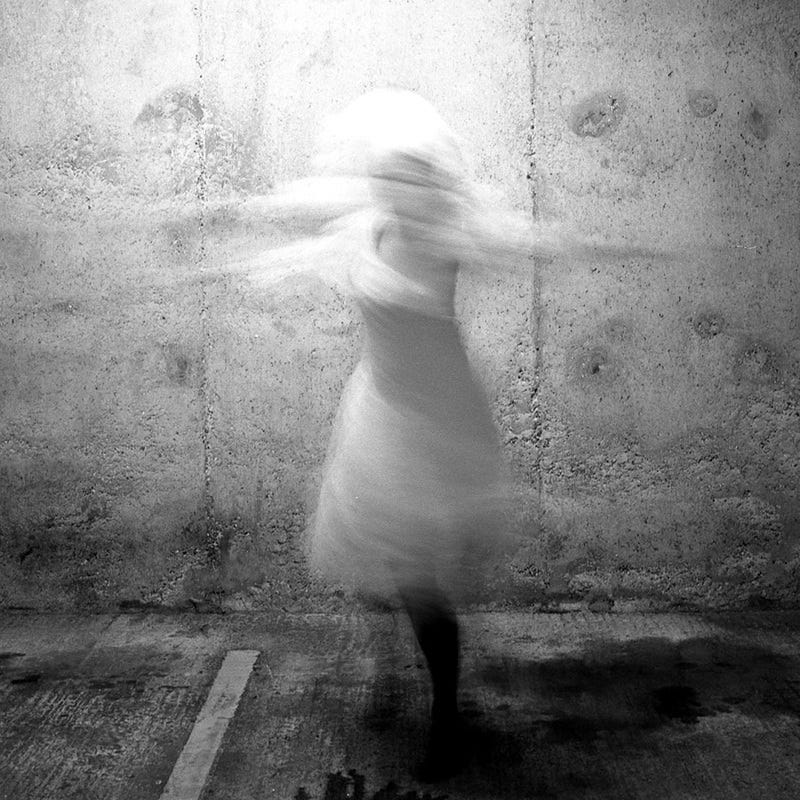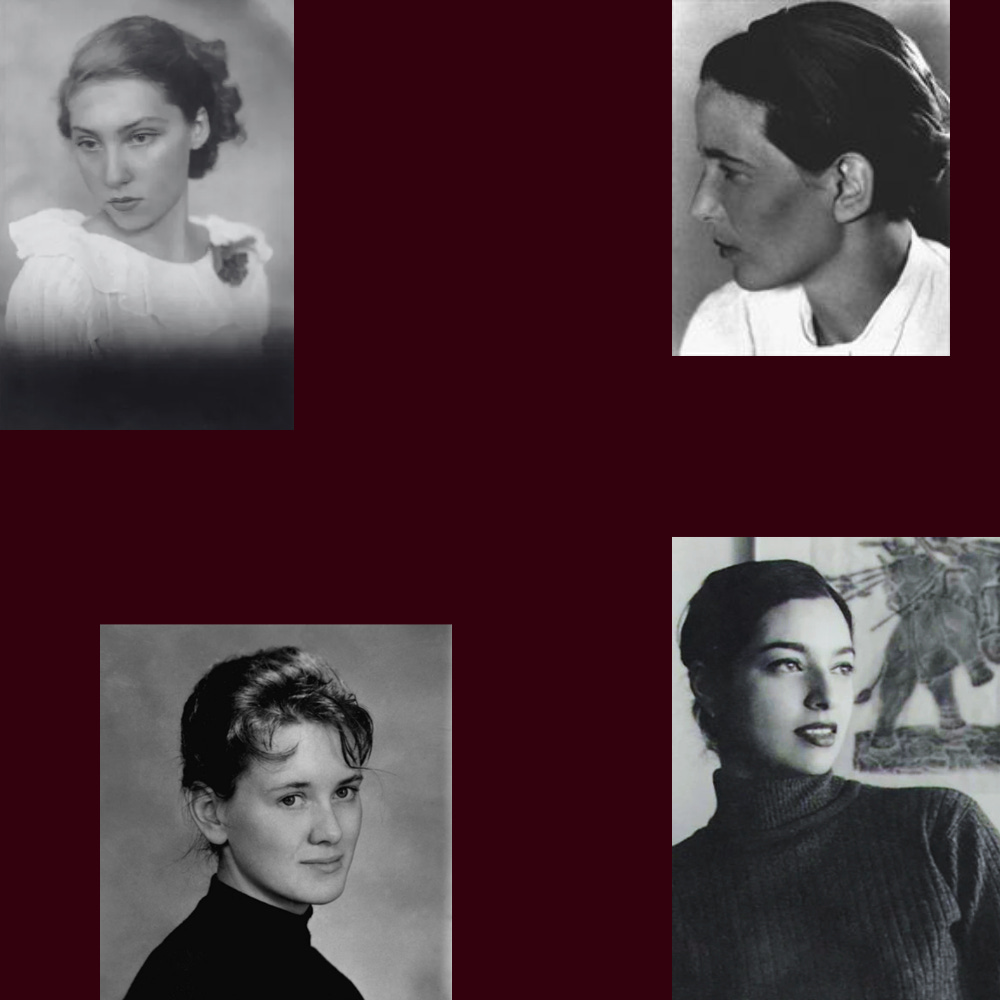Dear reader,
I emerged from a session with Dr. R– last Saturday with a sharp clarity I can only begin to describe as spiritual. I was at a loss for words. I tried to articulate how our exercise touched me in hugely profound ways, but every word seemed flimsy and superfluous. I was scrambling for words when Dr. R– interrupted me to say, “Zea, some experiences are just beyond our capacity for words. Leave it be for now. Allow the words to escape you. Allow the words to find you later and write about it then.”
Here is my attempt, dear reader, at letting the words find me.
What seemed like a straightforward exercise, free of embellishment, cracked something open within me. It uncovered a part of me I never imagined existed—loving, merciful, and whole. It was both a spiritual opening and an existential shift, the sudden awareness of a voice deep within, steady and true. I was reeling with the realization that this presence, this voice, wasn’t separate. She was me.
It was a visualization exercise, one that we’ve done several times since our first session. I came to the session with an intention. I wanted to make sense of my lifelong game of cat and mouse with loneliness and how it’s followed me since I was a little girl. My loneliness, you see, is an ancient, withered woman, her jagged nails curled and caked with filth, dragging herself in my shadow. The Old Woman lurks, clawing at the edges of my being, desperate to reach me, her bony fingers hungry to tear through the flimsy light clinging to my skin. I’ve always carried a sharp, mordant fear that when she finally catches me—when I fail to outrun her once and for all—her single touch, like Orpheus’s glance, will pull me into the depths of the Underworld, trapping me in its darkness and despair forever. It was for fear of The Old Woman’s touch that on a Wednesday night, a day before I was to go back to my place in New Manila, I texted my sister in San Francisco:
I’m most scared of losing heart again, of losing the will to take care of myself. Its such a hard place to be, ate. But I have to try, I eventually have to learn how to take care of myself and learn to keep doing so even when it feels so so so hopeless sometimes. Im most scared na if I just stopped taking care myself, no one would even notice and care because everyone is busy with their own lives. And if I just fell off again, the world would just keep on turning. Sometimes I feel so small and worthless in the grand scheme of things. My brain believes that if I was gone, I dont think it'll be much of a loss.
It isn’t The Old Woman who haunts me, I realized, but what she drags in her shadow. She symbolizes what I fear the most becoming: a ghost. What I fear is not her, but the void she holds up to me—the slow dissolving of my edges, the slipping away of my existence into something weightless, faceless. I fear becoming what cannot be touched, what cannot be named. I feared slipping into my own vanishing, my own erasure. To be physically alive, breathing and taking up space, but forgotten, abandoned, invisible, useless, left for the dogs.
I reached this moment of reckoning, finally. So I asked Dr. R–, “Why am I so terrified of being alone?” Hoping for an edifying, consummate answer. But Dr. R– only said, “Why don’t we ask your loneliness that?”
All these years, I’ve tried to run away from The Old Woman. But that Saturday morning, sleep still clinging to my eyes, Dr. R– insisted, “Why don’t we talk to her?”
It was astonishing, and frankly, I had to laugh.
And so she led me through the exercise. “What do you see when you feel alone?” She probed. “Who comes to mind?”
I imagined a scene from my childhood, the dining area with the wooden lazy Susan, the gaudy Last Supper painting. And then slowly, and with a pain that felt like tearing, I reconstructed my dead father’s face. The way he looked at me, with a complete absence of love. Eyes, jaundiced and threaded with red, a rage so physical it seemed to press against me. His mouth, a harsh, clenched line. His jaw, filled with so much tension as if holding back something unbearable—or unleashing it. My father’s silence the main course for lunch, served in heavy, suffocating portions. A silence that wrapped itself around me, made me small.
The only silence my body has known ever since.
“What did the younger version of yourself need at that moment?” Dr. R– again.
I said a few things over the tears: warmth, understanding, comfort, acceptance, proof that he wants me alive.
Do you see me? Please see me. Please see me. Please see me.
“And what does that loneliness you feel at the dining table want?”
I told Dr. R–, “It wants me to hold her hand.”
“Can you do that right now, Zea? Can you hold your hand?”
I nodded and brought both hands to my chest, pressing them close, clasping them like a fledging bird seeking warmth. My right nursing my left, a quiet, methodical gesture, caressing the knuckles one by one. It was a touch that felt both foreign and deeply my own, an act of memorizing the shape of comfort, the shape of my non-disappearance.
Dr. R– continued, “Feel it, feel your own hand. Feel the way that you exist right at this moment, and all the moments before. You’re not a ghost. You’re not invisible. You’re here. You always will be.”
Dear reader, until now the words elude me.
I hadn’t realized that my fear of confronting The Old Woman was also a way of abandoning myself, a betrayal that turned me into an accomplice in my own vanishing. What began as a girl’s way of avoiding pain hardened into a blade I turned inward, a practiced cruelty that involved slicing away at the parts of me that were unarmored.
In that single, instinctive act of holding, something shifted. I am here. I always will be.
I was introduced to someone I couldn’t recognize at first—a hidden, delicate young girl, long buried beneath layers of habit, fear, and the quiet machinery of survival. The gesture was so small, yet it felt monumental (the flimsy word I gave Dr.R– was “powerful”) in its symbolism, like extending my hand across a vast chasm. It wasn’t merely an act of comfort but a profound recognition, a wordless acknowledgment of someone within me who had always been waiting to be seen, to be held.
I was cradling the young girl I didn’t realize was me all along. I held myself as though any sudden pressure might cause this fragile presence to vanish, as though the weight of my own touch could undo her entirely. And I have disappeared, time and time again. The light left burning, the door swung wide open, the window fractured—all because I feared The Old Woman of loneliness closing in on me. I have disappeared—but to where? To whom? Into the arms of lovers who held me like water, to cities that swallowed me whole, to beliefs that unraveled in my hands like dirt.
Perhaps that is the true sadness—that I was never there to bring myself back to myself, to guide myself home. But now, I am learning. I am learning the intoxicating weight of my own presence, the heady, almost dangerous possibility of existing fully. Before, there was the quiet, self-effacing habit of disavowal, but now I claim myself. I claim her imperfection, her irrevocability, the freedom and burden of existing as she is.
Some days, I dance to Caroline Polachek’s I Believe as I cook, spinning in the quiet joy of being here, singing,
You’re not alone
Under a sky of vultures
With all that could’ve been
You made it home
With silver string unbroken
Ain’t that the sweetest gift?
I am learning, too, that in my moments of longing, I am both the lover and the beloved—whole in my aching, complete in my desire. On other days, I am creating altars, sacred spaces for the women writers who guide me, who speak to me across time and space: Clarice, Annie, Simone, Marguerite, Jhumpa. Clarice who wrote with her maddening, fragmented, dreamlike urgency because that was her language. Annie who chose her spare, unsentimental style not because she thought it would make her sound sophisticated—but because it was her truth. Jhumpa, tracing the ache of belonging in a language that feels both yours and not yours. Simone, unmasking love and womanhood, demanding we bear the weight of freedom and self-definition. Marguerite, with all her elliptical sentences, her obsession with time and memory and bodies and heat, who wrote as if she were carving herself out of marble.
I am a disciple, in silent reverence, drawing closer to the orbit of their feminine genius. In their words, I find a mirror, writing myself into the women they were, the women they still are.
This temple I’m building, too, is where my voice takes form in the spaces between the silences, in the claiming of what was always, always mine.





